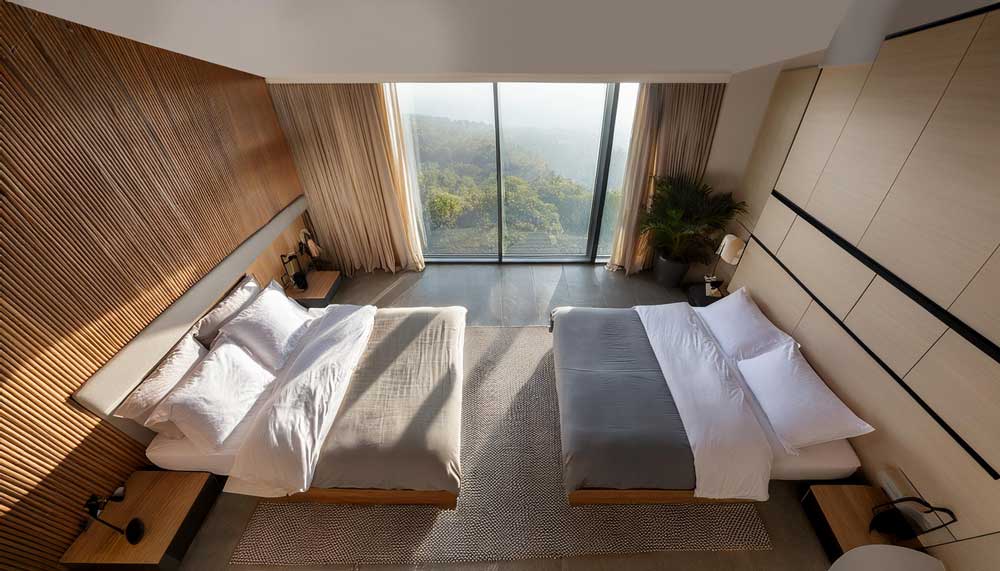The parameters of a successful marriage should ideally be defined by each individual couple. Right? Unfortunately, there are certain socially sanctioned ideas that are so ingrained within us; one of the most common is sharing a marital bed. Convention and conditioning dictates that we sleep in the same bed as our spouse, and that is one of the primary benchmarks of a healthy and thriving relationship. However, this may not necessarily be the case. An increasing number of millennials are experimenting with alternate dynamics to reap the benefits of a good night’s sleep. One of these solutions is Sleep Divorce.
Sleep Divorce essentially refers to couples who choose to sleep in separate beds – even separate rooms if they have the luxury of space. These couples might be happily married and together in every other sense, except for their sleeping habits. Sleep Divorce has gained plenty of momentum as a 2024 marital trend, with more couples opting for it and also being forthcoming about their choices. Says psychiatrist Dr Jhanvi Santhosh, ‘When a couple says they’re sleeping separately, the tendency is to assume that their marriage is troubled in some way. However, sleeping in different beds or rooms is a practical way to avoid some of the issues that could create cracks in a marriage! If one partner tends to snore, or behave restlessly during the night, it could interfere with another partner’s ability to sleep well at night. Then you also have different sleeping patterns. One partner may want to wake up early and go about their bath and chores, while the other may have read a book into the wee hours of the morning. There are also more serious issues like sleep apnea, which could impact a good night’s sleep for both partners. In such scenarios, sleep divorce may actually be a healthy practice for the couple. It helps to eliminate all the resentment that’s caused by a bad night’s sleep. The term itself may sound jarring, but it doesn’t mean there’s something wrong. It just means you’re trying to weed out sleep disturbances and ensure that you get your eight hours of restorative shuteye.’

The idea of twin beds or even separate bedchambers isn’t new. In fact, Western society in the Victorian ages would advocate for it on several grounds. In her 2019 book, ‘A Cultural History of Twin Beds’, Hilary Hinds says ‘Twin beds were more than just a sleeping arrangement. They were a way to stay healthy, a chance to mark out their occupants as thoroughly modern, and a means to stake a claim to a particular understanding of contemporary marriage. Uncovering their cultural history required engaging closely with the three distinct domains – hygiene, modernity, and marriage – in which twin beds were recommended and chosen.’ However, with time and social conditioning, the trend of sleeping separately took a backseat. According to Hinds, a study conducted by Time magazine in the USA in 1944 reported that 87 per cent of husbands and wives slept in a double bed, but 42 per cent of the wives felt twin beds would be preferable. But there has been a resurgence of common sense since then. Cut to today, a recent survey by the American Academy of Sleep Medicine revealed that one-third of couples opt for sleep divorce, purely on practical grounds!
Karthikeya Srinivasan, a 37-year-old IT professional is married with two kids. For the last three years, she’s been ‘sleep divorced’ from her husband, and they’re much happier now. ‘My husband and I work different shifts,’ she explains, adding ‘He stays up until midnight most days, while I’m asleep by 9.30pm since I’m an early riser. When he would potter into the room, it would be right in the middle of my REM, and he’d disrupt it completely. Even though I would manage to get my eight hours in, the quality of sleep was terrible and I was always crabby during the day. We just set aside societal conditioning (mainly our parents!) and did what made sense to us. Of course, our kids did wonder initially why their father would sleep in the guest room every night, but we explained the practicalities of the situation to them. Also, it doesn’t have any bearing on the rest of our relationship. We temporarily cease the arrangement every Saturday night, since we don’t work, and can both sleep in on Sundays! This breaks the monotony and also keeps the spark alive in our marriage.’
Dr Jhanvi suggests spending time together before bedtime as a couple, with a bonding exercise. It could be watching a movie, playing a game of Scrabble, or grabbing a glass of wine together. With this ritual, you can get to bed feeling closer to your partner, without the need to co-habit and disrupt your sleep!